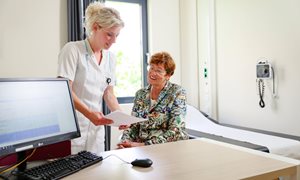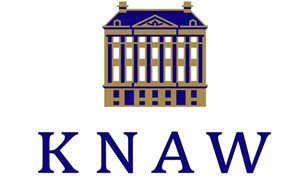
The Dutch Organization for Scientific Research (NWO) has awarded a large grant of 11.7 million euros to Radboudumc and others for the Next Generation ImmunoDermatology (NGID) project, as part of the National Science Agenda, Open Route for Consortia (NWA-ORC). This first national dermatology consortium, led by Leiden University, focuses on the development and application of high-tech biomarker research in healthcare.
More than 2.5 million Dutch people suffer from chronic inflammatory skin diseases. These diseases are often not life threatening, but their personal consequences are profound and the social costs of treatment very high. Too often, finding an effective treatment is a long search.
Patient-specific fingerprint
NGID stands for developing the right care for the right patient at the right time. Over the next six years, six skin diseases will be examined in great detail in this project, in a unique collaboration between hospitals, knowledge institutions, high-tech companies, patient associations and the (bio)pharmaceutical industry. Dermatologists from all academic hospitals will be joined by, among others, biologists, bioinformaticians, statisticians, physicists and chemists, behavioral scientists, communication scientists and, of course, the patient. Through complex data analysis and integration, a patient-specific fingerprint is created that is needed for future person-centered and cost-effective health care.
Biomarkers and skin organoids
The researchers involved from Radboudumc are Ellen van den Bogaard, Marieke Seyger, Juul van den Reek and Elke de Jong, theme Inflammatory diseases from the Department of Dermatology, and Tom Ederveen, Anna Niehues and Peter-Bram 't Hoen, theme Nanomedicine from the Center for Molecular and Biomolecular Informatics (CMBI). They lead three lines of research within this large application. In NGID, skin diseases are mapped using the latest detection techniques, after which researchers at CMBI take care of data storage and co-develop analytical methods for finding disease- and patient-specific characteristics, so-called biomarkers.
The findings are tested in skin organoids: pieces of skin cultured in the lab. This non-animal research method is also used, for example, to test drugs for skin diseases in the research group of Ellen van den Bogaard. Marieke Seyger, Juul van den Reek and Elke de Jong will then work to improve the care of patients with skin diseases such as psoriasis and atopic eczema. The scientists are working closely with communication experts from the University of Applied Sciences in Arnhem and Nijmegen (Els van der Pool and Nanda Olde) who are researching the right way to transfer information between the consortium partners, patients and other stakeholders.
Ellen van den Bogaard, professor of Innovative Experimental and Translational Dermatology: 'We have seized the momentum to radically change patient care. Recent technological advances allow us to map the disease process down to the cellular level, and this comes along with a large influx of specific drugs for dermatological diseases. Through NGID, we will find out which drug will work best for which patient, and we will have the opportunity to apply this knowledge to care.
-
Want to know more about these subjects? Click on the buttons below for more news.
More information
Pauline Dekhuijzen

wetenschaps- en persvoorlichter
Related news items

The future of laboratory animal research More attention to living conditions of laboratory animals
16 May 2022 On May 9, a meeting took place at the Radboudumc as a result of the launch of the Dutch Transparency Agreement on Animal Testing. The Radboudumc is one of the twenty signatories and has thus committed itself to openly and transparently communicate its vision and policy with regard to animal testing. go to page
Rubicon grants awarded to three RIMLS researchers
19 April 2022Three researchers have received Rubicon funding from NWO/ZonMw. This will enable Elke Muntjewerff, Laura de Vries and Laurens van de Wiel to do research at a foreign research institute for the next two years.
go to page



